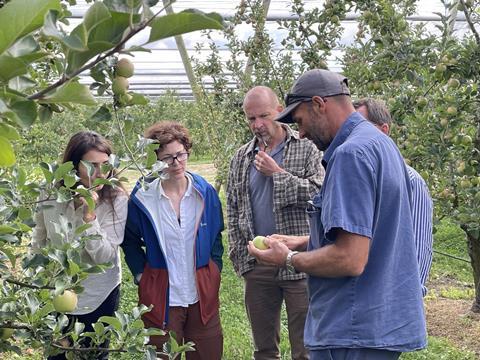New funding to help develop biosecurity toolkit for pest and disease risk management

Hort Innovation has announced a A$9.5m injection into pest and disease risk management measures for safe fresh produce trade.
This investment is being delivered through Hort Innovation in partnership with all Australian state and territory governments and led by the CSIRO, Australia’s national science agency.
The partnership will work closely with Australia’s domestic biosecurity regulators to strengthen the country’s science-backed approach to managing phytosanitary risks, making it easier for fresh produce growers to conduct safe cross-border trade.
Hort Innovation chief executive Brett Fifield said the program would also facilitate international market access by demonstrating Australia’s commitment to, and confidence in its biosecurity system to the country’s trading partners.
“Domestic and international trade is essential to the horticulture industry,” Fifield said.
“By working with some of the country’s top scientists, the process for reaching market access agreements will be made easier. Improved risk science tools can support biosecurity measures that may be more cost effective and less time prohibitive for growers without compromising our already great reputation for delivering quality, safe produce.”
While the Australian produce industry is renowned for having stringent biosecurity practices along all stages of the production and supply chains, state and territories have differing phytosanitary, or pest and disease management, requirements for inter-state trade.
As part of the four-year effort, researchers will work closely with state and federal governments to develop and refine a fit-for-purpose ‘toolkit’ that can be used to improve state-level decision-making about biosecurity risks and how these are best managed. The tools will also underpin analyses to support international market access negotiations.
This toolkit will provide Australian growers and exporters who are already effectively managing their production chains to minimise pests and diseases, a way to demonstrate that their fruit, vegetables and nuts present a low biosecurity risk.
The project will build on the Australian industry’s already excellent practices in this space, facilitate better use of data in the management of plant biosecurity risks, and will include new and emerging technologies such as optical grading and automated pest surveillance.
CSIRO project lead Rieks van Klinken said strong scientific tools will help Australia’s horticulture sector by underpinning new and existing market access opportunities and supporting our robust biosecurity system.
“Our researchers are improving the tools available to industry to streamline phytosanitary risk management by demonstrating and quantifying the contribution of commercial supply chain and production practices to risk reduction,” van Klinken said.
“The tools will make it easier for biosecurity regulators to incorporate commercial practices into biosecurity system processes and ultimately will enable industry to deliver high-quality, low pest-risk consignments into treatment facilities or directly into domestic and international markets.”



